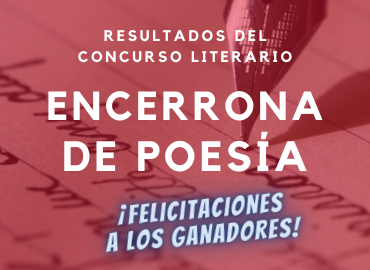The Faculty of Arts & Science’s Department of Spanish & Portuguese held its first Spanish fiction competition to celebrate “microrrelato” — short, compelling, concise narratives.
The department worked with the community organization Latin@s en Toronto and invited submissions not only from U of T students but from anyone in the city’s Spanish-speaking community over 16.
“The purpose of the contest is to increase awareness of our programs in Spanish both at the University and the community at large — and to teach us more about the Spanish-speaking community in our province,” explains Berenice Villagomez, the department’s communications and undergraduate coordinator.
“When compared to the large Hispanic population of the US, the community in Ontario is really small. However, we know that Ontario is the province of choice for Hispanics to settle in when they arrive in Canada and we want to reach out to them.”
Participants were asked to submit a short story no longer than 200 words under the theme “El día después” (The Day After) — which was left open-ended intentionally.
“All of the submissions touched on the idea of change,” says Villagomez. Submissions explored topics such as the day after a loved one passed away, or the day after a life-altering accident.
In all, the department received 20 submissions — eight from U of T students and 12 from the community. Reviewed by a panel of faculty members, alumni and members of community organizations, the winner will be announced October 16.
“Considering this is the first time we’ve run a short fiction contest in the middle of the pandemic that has hit many Latin American communities in Toronto hard, we consider it a success,” says Villagomez.
Earlier this summer, the department held its first "Encerrona de Poesía" (Poetry Lockdown) event that was won by Samuel Jambrovic, a PhD student in Hispanic linguistics, for his poem "Ánade.

Margarita Cifuentes chose to write about how her life would change the day after she graduates from U of T, which isn’t far away for the fourth-year student, who as a member of Victoria College, is majoring in cognitive science and Spanish and minoring in Latin American studies.
“This is my last year of my undergrad degree and I'm often thinking about what I will do next, so my story is a short peek into the uncertainty and thought process that I've experienced,” she says.
Originally from Colombia, Cifuentes has taken writing courses before, but this is the first time she has submitted a piece for a competition in Spanish.
“Hopefully the contest creates visibility for the department since it’s a small department, and it encourages other people who want to write in Spanish to take these classes,” she says.
This contest is just one way the department is bolstering the relationship with the city’s Spanish-speaking community, says its chair, Ana Perez-Leroux.
“In the last few years we’ve started to reach out to multiple community organizations,” says Perez-Leroux, who says that when she first arrived at U of T, the department had a solid academic identity but operated totally separate from the community.
Other efforts include some Spanish courses now weaving in experiential learning with community groups and encouraging students to have their essays and other writing in Spanish publications around the city.
“We’re going in the right direction,” says Perez-Leroux.
“And I’ve always loved microrrelato — microfiction,” she says. “I’ve always followed microfiction competitions and some of them are absolutely amazing, so I thought, we should do one here. I can’t wait to read what they’ve written.”
Cifuentes appreciates these efforts, believing increased connection with the Hispanic and Latin American community will have a significant impact on the student experience as well as future careers.
“For Latin American students this will help in finding a wider community that they can join and participate in that they might not have been aware of, and students learning Spanish can benefit from having the opportunity to communicate with Spanish speakers outside the classroom,” she says.
“It can also give students in the department ideas about what they can do with a degree in Spanish.”

